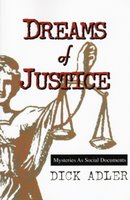* * *
On those occasions when I venture into the land of introspection (usually prompted by no decent baseball on television),  I sometimes wonder if I’m short-changing readers by deliberately not reviewing the latest certain-to-be-bestsellers by writers whose names have become household words. Don’t these genre icons deserve critical attention as well as their hefty royalty checks?
I sometimes wonder if I’m short-changing readers by deliberately not reviewing the latest certain-to-be-bestsellers by writers whose names have become household words. Don’t these genre icons deserve critical attention as well as their hefty royalty checks?In a better world, one where newspapers and magazines have limitless space for reviews, the answer would be, “Of course they do.” But out of the 60 or 70 books a month I get sent by publishers, I have space to write about 12 to 14 of them in any kind of coherent way that doesn’t look like a laundry list.
If the author of previous bestsellers seems to be trying something new, moving into virgin territory, he or she certainly deserves to be reviewed--even if I know that their publishers have already collected a string of heavyweight blurbs to fill the back jacket cover and have signed up for co-op advertising deals with bookstores to guarantee sales.
But if the book in question is the eighth or 16th in a series whose past successes guarantee a spot on the bestseller lists, isn’t my review irrelevant? If I liked the book, who gives a flying press release? If I didn’t, who will be warned and/or dissuaded by my rapier-like savagery?
Not all bestsellers get ignored in my column. When I got an advance reader copy of a book called The Da Vinci Code, I had already reviewed a couple of early thrillers by Dan Brown. I liked his latest, in spite of its lame ending, and suggested a longer, standalone review. This was many weeks before the book took off like a literary missile and went on to earn the jealousy of other writers, the wrath of religious true believers, and what looks like a permanent place on bestseller lists. But had all of that happened before I decided to review The Da Vinci Code, I probably would have passed and given the space to the next Dan Brown.
Every regular reviewer I know has personal areas of special interest as well as places they’d rather not visit. My own preferences include darker shades of noir, mysteries set in foreign countries or unfamiliar cities, and ones that reinvent various periods of history. As for the kinds of mysteries that my hand naturally moves away from, I’ll read 20 pages of anything: 10 if it’s about cats. Cozies for the most part don’t shout, “Review me!” although I have been pleasantly surprised by many books that fall into that category.
In general, I try to observe that wonderful dictum of Anthony Boucher, the man who invented serious crime reviewing: “The important distinction is not between the schools of the whodunit but between the good and bad books whatever the school.”
The absolute best thing about the planning and writing of my column is that I get to choose the books I review--a freedom not available to all reviewers, many of whom must take on what editors send them or risk not being asked again. Stories set in Chicago get special consideration on my list: a provincial admission, perhaps, but one appreciated by readers. Veteran writers who have slipped from the public eye for no discernable reason other than the pressures of publishing fancy also have a leg up.
And best of all are those new writers and their publishers who take chances and work hard to improve the field. Olen Steinhauer, Reggie Nadelson, Jim Kelly, Barbara Nadel, Nichelle D. Tramble, Jacqueline Winspear, Qiu Xiaolong, and Rebecca C. Pawel aren’t household names as yet, and they may never make it to a bestseller list. But I’d rather review their books than virtually any of the blockbusters blocking the doors at the big chain bookstores.

















1 comment:
Great stuff, and right on, as Dick's observations usually are.
I make more of an effort to review bestsellers (or likely bestsellers) than Dick does. Part of that is because I review for a paper that's a little more geared towards popular coverage (the Sun-Times).
But I also do it in hopes that reviewing a book by a big name (like Lee Child, for example) will draw readers to the column, and then give exposure to the lesser known writers in it.
I don't know if it works or not, but that's my operating theory.
Post a Comment